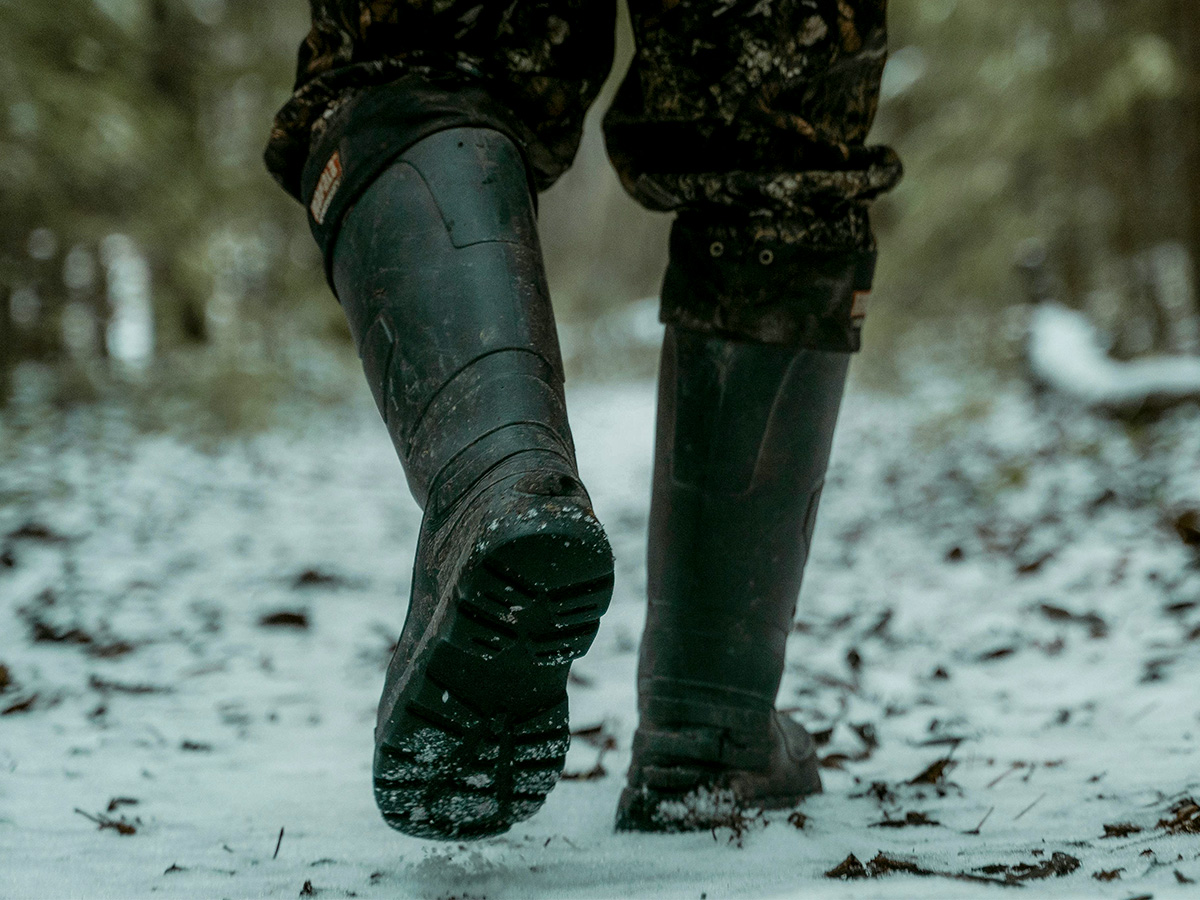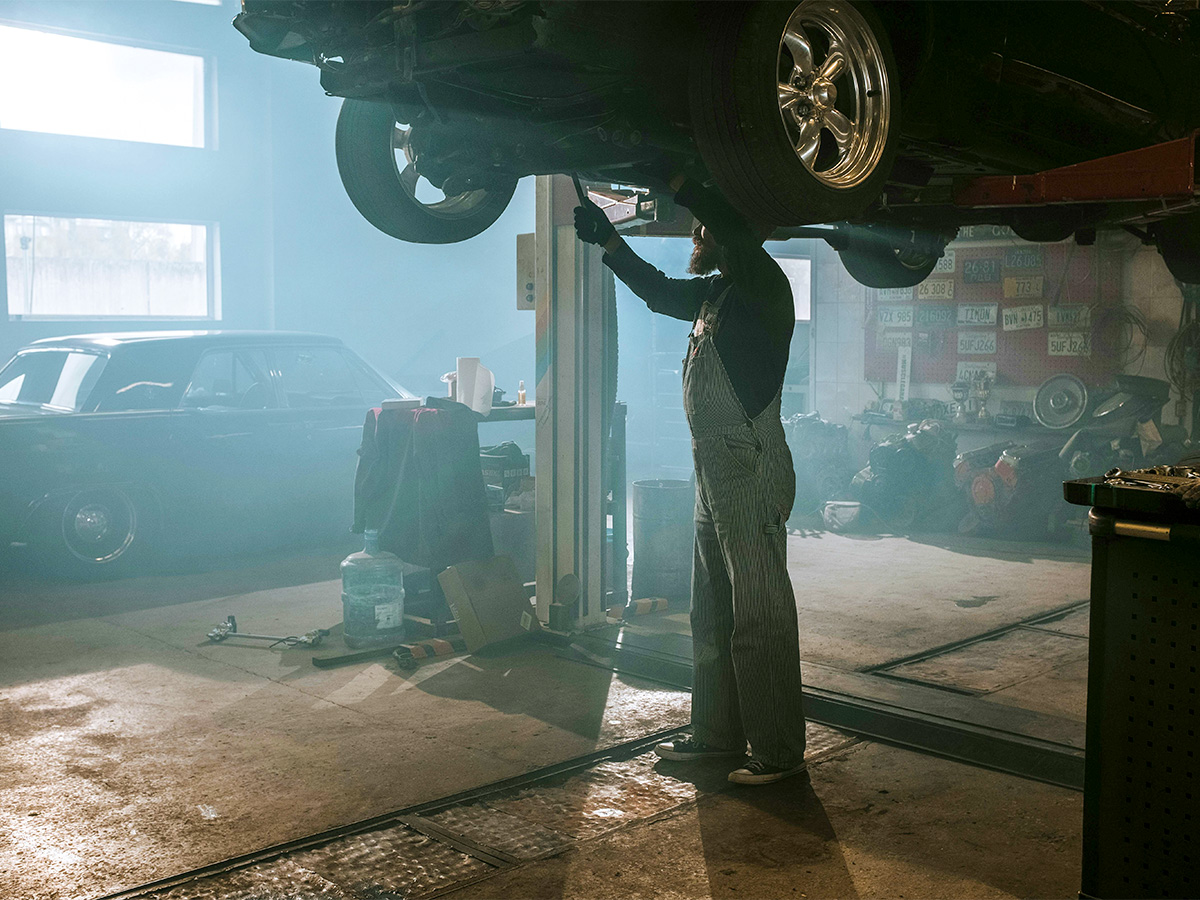I’m not sure of how many times I’ve written this post. Each time I enter the internet though, I’m compelled to write it again. I swear, the world is against me in this regard. It teases me and taunts me – all because my mother was an English major during the final two years of her college career. Much of my young life was consumed with grammatical correction and since I surely can’t wander around the depths of the seemingly dark web commenting on the grammar of people who would lambast me for doing so, I’m relegated to the writing of my thoughts on this very website. I apologize for putting you through this, but it’s something that needs to be done.
Before I begin though, I’d like to note that perhaps what I’ll share below doesn’t pertain to grammatical errors, per se, but more so spelling errors. Although, I suppose the way each word is used within the confines of a sentence would place it in the arena of grammar, technically speaking. Oftentimes, it’s the word itself that’s in error. Such as your and you’re. If what I’m telling you isn’t clear right now, keep reading below. You’ll see.
I vs. My
This one’s been around for quite some time. I’m uncertain if the error was popularized by the Kardashians or by the Housewives of Orange County – whatever the case, hearing or reading people misuse the word I is like listening to someone scratch a chalkboard. I’ll also note that the folks who transplant I for me are oftentimes rabidly stubborn about it. They’ve told me it’s “proper grammar” and have given me very cocky looks to shut me up. Do you have any idea how challenging it is for me to shut up?
Incorrect
I need to book a hotel room for my wife and I.
Correct
I need to book a hotel room for my wife and me.
The Rule
Simply remove the other person from the sentence and say it again. Whichever sounds better is usually correct.
Believe it or not, I’m friends with someone on Facebook who posted something along the lines of, “I had some solar panels installed on my wife and I’s house.” And no one corrected the poor chap. The post will now live forever within my soul. The correct version would be, “I had some solar panels installed on my wife’s and my house.” Again, simply remove the other person and repeat the sentence.
By the way, there is no possessive I. That would be the possessive determiner my and possessive pronoun mine.
Your vs. You’re
This is a biggie with smart phones. In my heart of hearts, I suspect it’s because people are too lazy to locate and use the apostrophe on their keypads and opt for the much quicker your as opposed to the proper you’re, but the error is still worrisome. Considering the fact that 100 years ago, soldiers were sending home to their sweethearts poems and love letters that would be classified as art by today’s standards, many of today’s teens can’t even spell, or are too lazy to spell, the word you’re correctly. To me, this is an issue.
Incorrect
I see your wearing blue sneakers today.
Correct
I see you’re wearing blue sneakers today.
Or
I see you are wearing blue sneakers today.
The Rule
When using the word your, you’re suggesting that something belongs to someone. It’s a possessive pronoun for a singular person, such as, “That is your book.” When you use the word you’re, you’re simply contracting the words you and are.
Who vs. That
This one will last with you forever. I swear, if the internet didn’t exist, I’d become no where near as upset as I do when I hear or read horrible grammar. But alas, here I am, typing away on said internet, complaining about the very thing I despise nearly the most.
Incorrect
I have a friend that loves Transformers movies.
Correct
I have a friend who loves Transformers movies.
This grammatical error is so pervasive that I believe it’s become part of the vernacular. About 90% of the people I hear speak, make this mistake. It’s honestly and dishearteningly a rare occasion when I converse with someone who says something like, “My mother was a woman who enjoyed cooking. And my uncle was a man who raced muscle cars.” If the person with whom (see what I did there?) I’m speaking manages to properly use the word who while describing a person or persons, two or more times during a conversation, that person has won my heart. It’s just so rare. So, so rare. Nearly everyone I know, and don’t even know, uses that when describing people. “My best friend is a person that loves to trash talk!” C’mon, you have to admit it’s utterly insulting to be referred to as a that!
The Rule
When referring to an individual person (and even when referring to other individual living beings, such as animals and pets), use who. When referring to something that has no life about it, use that. Example:
I have a desk that is brown. I have a friend who is Irish. I’m part of a Jiu-Jitsu club that is wonderful.
In the last example, I described a group of people. Even though the group consists of beings who have heartbeats, the group itself is still referred to as that.
That Vs. Which
This one’s a bit tricky. It involves both Britain as well as the condescending. Both use which. Apparently, in Britain, folks use which for everything. The condescending, such as those who ride bicycles along thoroughfares near Bear Mountain, New York or through Hyde Park in London, use which for the hell of it. They think it makes them sound fancy. Perhaps it does to the uninitiated, but to me, it makes them sound confused. Below is an example of a confused person misusing the word which. And then an example of the same person saying the same sentence after having a conversation with me.
Incorrect
Boy, this certainly is a piece of property which greens up during the summer!
Correct
Boy, this certainly is a piece of property that greens up during the summer!
Again, in England, it’s apparently okay to use which in the example above, but here in America, it’s not. There are very specific cases for when to use which and that.
The whole thing has to do with restrictive and nonrestrictive clauses. And once you understand what these two things are, you’ll understand when to use each of the two words being discussed in this section. Simply put, restrictive clauses contain important information. Information that’s critical to the meaning of the sentence. Nonrestrictive clauses contain fluff that’s nice to know, but that’s not really all that important. Please read these two sentences:
Restrictive
I need to rent a bicycle that has two seats so my partner and I can ride it simultaneously.
Nonrestrictive
I rented a bicycle last week, which happened to have two seats, and I rode it around alone all day. What fun!
How would the condescending misuse which? “My mother is a person which loves the color blue.” Ugh. They’re so annoyingly stupid.
The Possessive Apostrophe
Let’s forget about all the slang out there that takes full advantage of apostrophes, such as, “We’re having a good ol’ time” and “There’s somethin’ goin’ on here.” For this section, I’ll focus squarely on apostrophes that are used for possession and contraction. Check out these examples:
Correct Possession
That’s Jay’s dog.
Correct Contraction
I don’t know what you’re talking about. (don’t = do not) (you’re = you are)
Incorrect Plural
I have some puppy’s for sale.
I have no idea where this plural thing is coming from, but I see it all over the place. It’s like, sometimes people are too lazy to add the appropriate apostrophe in their sentences, yet, they’re not too lazy to add it when it’s uncalled for. These are the rules:
The Rules
Use an apostrophe to connect two words, such as do not, creating don’t. Also, if something is owned by something else, use an apostrophe to indicate that, such as, “That’s the car’s bumper.” Don’t ever use an apostrophe to indicate there is more than one of something. For example, “I have two puppy’s for sale” should be, “I have two puppies for sale.”
If you’re ever confused, simply browse to Google’s homepage on your phone and type in, “When to use apostrophes.” Learning really is that simple.
There’s vs. There Are
This is one that’ll never leave your brain either. Once you realize what people have been doing in regards to this mistake, you’ll be unable to unrealize it. I’ve been suffering through this “realization” for years. What’s worse is that this mistake isn’t new. I’ve watched movies that were filmed during the 1930s and I’ve heard it. In Hemingway’s For Whom the Bells Tolls, it’s there – and that was written in 1940. It’s everywhere. It’s awful and the insidiousness stems from the unsuspecting contraction. Here’s an example:
Incorrect
There’s a lot of people in this stadium.
Correct
There are a lot of people in this stadium.
Because a contraction is used, people don’t notice they’re making a mistake. The truth of the matter is, they are, no matter how common that mistake is. In all honesty, I’ve rarely seen or heard this type of intended usage when it wasn’t a mistake.
Without using a contraction, would you ever say to someone, “There is a lot of people in this stadium”? No, you wouldn’t. Why not? Because you’d sound like an idiot. But with that little apostrophe stuck in there, you’ve got free reign to do whatever you’d like. And then innocents like me have to suffer through it. Where’s the justice?
The Rule
For a singular thing, use is. “There is one person in this room.” Or with the contraction, “There’s one person in this room.” For two things, use are. “There are two people in this room.” Don’t use there’s for two things, such as “There’s two people in this room.” I beg of you.
It’s vs. Its
Granted, this one can get tricky because when in the world does a person really think about when to use it’s vs. its? I mistaken one for the other quite often while writing blog posts, mostly because I type quickly and my brain sometimes works faster than my eyes. Or vice-versa. Or whatever. Sometimes I catch my mistakes during proofreading, but sometimes not. So I don’t want to beat up on people for making this error, since it’s an easy mistake to make. I’ll explain the way things are supposed to be here nonetheless.
It’s and its share the same exact pronunciation, although, there’s a huge difference among the meaning of each word. Its is possessive (belongs to) and it’s is two words that have been stuck together (it is). For instance, one may correctly write, “My wood chipper burned its fuel because we were running it too hard, but I must say, it’s a damn hard worker.” In this case, the fuel belonged to the wood chipper, hence the use of its. Also, the wood chipper (it) is a damn hard worker, hence the use of it’s (it is). Pretty easy, right?
Lose vs. Loose/Loser vs. Looser
Sometimes I wish people would just learn how to spell. I mean, seriously. Lose means to be deprived of. To cease to own or retain. “I don’t want to lose you, baby. You’re the love of my life.” Loser defines something that’s lost something, such as a game or a contest. “You’re such a loser. I can’t stand you.” Loose is the opposite of tight. It’s when something isn’t firmly or tightly in place. For instance, “Be careful, the top of that peanut butter jar is loose.” Looser is a comparative adjective meaning “more loose.” It’s debatable whether or not looser is even a word, but it certainly doesn’t mean what people think it means in the comment sections on the internet. “That guy is a looser. Jeez.”
“A” Before a Vowel
I read this error much more than I hear it. Probably because people so frequently text and write quick posts on Facebook as a medium of communication, as opposed to speaking. It’s also difficult to make this mistake through speech because it sounds ridiculous. I do wish they’d be more careful though because through their blundersome writing, they are stupefying the world. As others read their words, those others become more dumb than they were previously. And honestly, we’ve got enough dumb people on this planet. We don’t need any more.
This is what I oftentimes read: “It’s a honor to meet you. You’re a articulate man.” Notice the a before the h in honor and articulate. In those cases, the a should actually be an an. Why? I’ll tell you below. By the way, the sentence should actually read, “It’s an honor to meet you. You’re an articulate man.”
The Rule
It’s not so much a vowel itself that calls for an an to precede it, but a vowel sound that calls for it. And it’s not so much a consonant that calls for an a, but a consonant sound. For example, “The man carries a ubiquitous style about him.” Notice the a that precedes the word ubiquitous? Even though ubiquitous begins with a vowel, that particular vowel sounds like a y, a consonant (most of the time). How about this – “It’s an honor to meet you, sir.” Or, “The bus arrives in an hour.” Notice the an that precedes both honor and hour? Both letters h are consonants, but sound like the vowel o, so they get an an.
Most of the time, this is an easy rule to follow. You’ll hear and read sentences like this: “Wow! Is that a cat?” and “Boy, that was an underhanded move.” But, of course, people still get it wrong far too often.
Less vs. Fewer
Back when I was a kid, I’d say things like, “Hey mom, there were less people at church this morning – am I right?” And then she’d slap me silly and hang me by my toenails from the clothesline. “Fewer, Jay. There were fewer people at church this morning. If you can count them, it’s fewer!” Can you even imagine that people out there today still say things like, “Less of us are going to the party tonight”? It doesn’t even sound good, but people will be people. I actually do hear it all the time and it’s disappointing, especially when the word fewer can have such a profound effect on who a person is speaking with. It sounds intelligent and it presents very well.
The Rules
If you can count the objects to which you are referring, use the word fewer. If you can’t count whatever it is to which you are referring, use less. Here are some examples:
There are fewer animals in the forest than there used to be.
Fewer cars are driving through.
There’s less water in the glass now than there used to be.
He’s less thoughtful than the boy next door.
The quantity of ocean water seems to be less this year, but then again, there are fewer oceans to measure.
Where this becomes tricky is when dealing with money and time. If someone were to say, “The national debt is rising at a decreasing rate. That’s good because it’s only increasing less than a trillion dollars a day now,” that would sound okay because that monetary amount is nebulous and changing. It would sound strange to hear, “…it’s rising fewer than a trillion dollars…,” but I guess fewer would be okay in this case as well.
Also, when discussing hours and minutes and time in general, go ahead with whatever sounds best. I’ve tried to use fewer when having these types of conversations and I sounded like a fool, so I use less when it’s called for. A person can’t be too “mathematical” when speaking, even if what the person says is technically correct. Whomever is being spoken to will dismiss the other person as being robotic and difficult to get along with and we don’t want that. “We’ve got less than 35 minutes to get there,” is fine, even though you can count the minutes. The problem is, there are seconds involved between those minutes and the sentence can get sticky. It’s like the dollars thing above. There are cents to contend with, so less is fine in these types of situations.
To vs. Too vs. Two
To differentiate which of these three words is called for in a sentence, it’s important to understand what each word means. Or how it’s defined. I’ll define each of these three words below.
To is a preposition that is used to show location, distance, or motion.
Example: I’m going to walk to the park.
Two is a number that follows one.
Example: I own two cats and two ferrets.
Too is an adverb that means also, more, or very.
Example: Can you please include me too?
People oftentimes confuse these three words, which is a shame because, as I mentioned above, they all have different meanings and are different parts of speech. A person can’t walk too the park and a person can’t be included two. A person can’t own to cats and to ferrets either. Unfortunately, misspellings like these occur frequently and because of them, the readers of sentences like these have trouble understanding their meaning.
They’re vs. There vs. Their
The confusion between they’re, there, and their is very similar to the above. The three words sound exactly the same but have wildly different meanings.
They’re is a contraction of the words they and are.
Example: They’re coming for you, so you better behave!
There is an adverb that means in or at that place.
Example: I’m driving there right now, so I’ll meet you there.
Their is the possessive case of the pronoun they, meaning belonging to them.
Example: It’s not your turn; it’s their turn. Yes, it’s theirs.
When people make this mistake with their writing, I suspect it’s because they simply don’t know how to spell the version of the word they wish to use. I believe they understand the meaning, but don’t know the proper spelling. This is why it’s helpful to learn how to spell. If in doubt, simply browse to Google and type in, “they’re vs. there vs. their.” It’s that easy. Really, it takes 10 seconds to learn this stuff. There’s no valid excuse in the world to post the wrong spelling to Facebook for 15 years straight.
Who’s vs. Whose
Again, this is another case of misspelling a word that sounds like another. very quickly:
Who’s is a contraction of who is.
Example: I need to be sure who’s coming with me.
Whose is the possessive form of who, a relative pronoun.
Example: I need to be sure whose laptop this is.
I guess the way to remember the difference between these two words is to remember that the apostrophe means that who’s is a contraction, which is two words stuck together. So if you can remember two words for one and possessive for the other, you’ll be in good shape.
The Unnecessary Question Mark
For some people, when to use and when not to use a question mark is confusing. Sometimes, a sentence sounds like a question or might seem like a question, but is actually a statement. If a person isn’t certain of whether a sentence is a statement or a question, they tack on a question mark just to be sure. I haven’t noticed this type of mistake very much in the past, but for some reason, I’m seeing it more and more these days.
A question mark (?) is placed at the end of a sentence that is a direct question. For example, this is a direct question: “How are you today?” Here’s another: “What’s the capital of Nebraska?” This isn’t a question: “I’m wondering how you are today.” This last one is actually a direct statement. I’m wondering something and that thing is how you are today. Just because the word how is floating around within the sentence, that doesn’t mean it’s a question.
I’m beginning to see sentences that incorrectly use question marks as their ending punctuation. Sentences like: “It boggles my mind how crazy he is?” and “I don’t know if I’m qualified to do it?” I suspect part of the issue with those who write these types of statements is that they’re actually questioning themselves as they write. Sort of like, “How can he be so crazy?” and “Am I qualified to do it?” They just get ahead of themselves and add question marks where they don’t belong.
Proper punctuation is critically important if someone would like others to understand the meaning of their communication. A person can’t willy-nilly add periods, commas, quotes, and question marks where they don’t belong, or omit them where they do, and expect their message to produce the impact they desire. It simply doesn’t work that way. Proper punctuation is key to being understood.
Lay vs. Lie
“I’m going to lay you down so I can lie next to you.” This really is as far as I need to go with this. If you read the first sentence of this section carefully, you’ll see that lay and lie have two different meanings. I’ll explain them below.
To lay means to place something down in a flat or reclined position. To lie means to either move yourself into a flat or reclined position or to already be in that position. The primary difference between these two words is the subject that’s being acted upon. Lay is what people refer to as transitive, meaning, usage of the word depends on the fact that there’s an object to be acted upon. A separate, outside object, other then the self. Lie is what people refer to as intransitive, meaning, no outside object is dependent upon. A person can lie him or herself down.
Incorrect
I will lie this scarf on the shelf.
Correct
I will lay this scarf on the shelf.
Incorrect
Do you mind if I lay next to you?
Correct
Do you mind if I lie next to you?
This is another one of those mistakes that has taken the world by storm. Almost everyone I’ve ever heard attempt to use the word lie, has used the word lay instead, incorrectly. Let’s just say hardly anyone says lie, while nearly everyone says lay.
There are so many more common grammatical and spelling mistakes out there that I’d love to share, but I surely need to stop somewhere. If you’d like to add your favorite (or most loathsome) to the comments so we can discuss, I’d enjoy reading what you have to say. Until then, thanks for reading!













